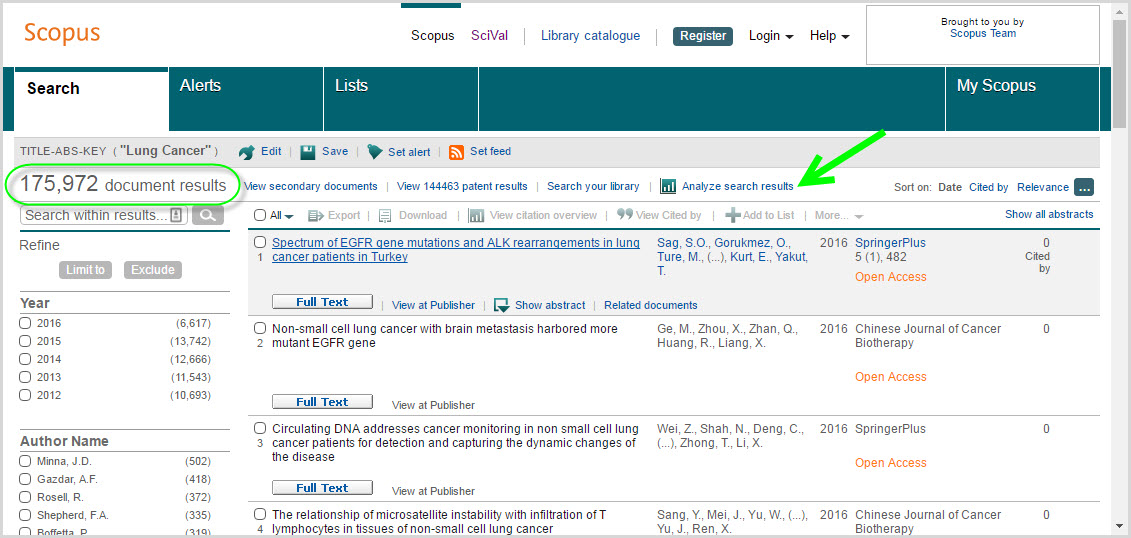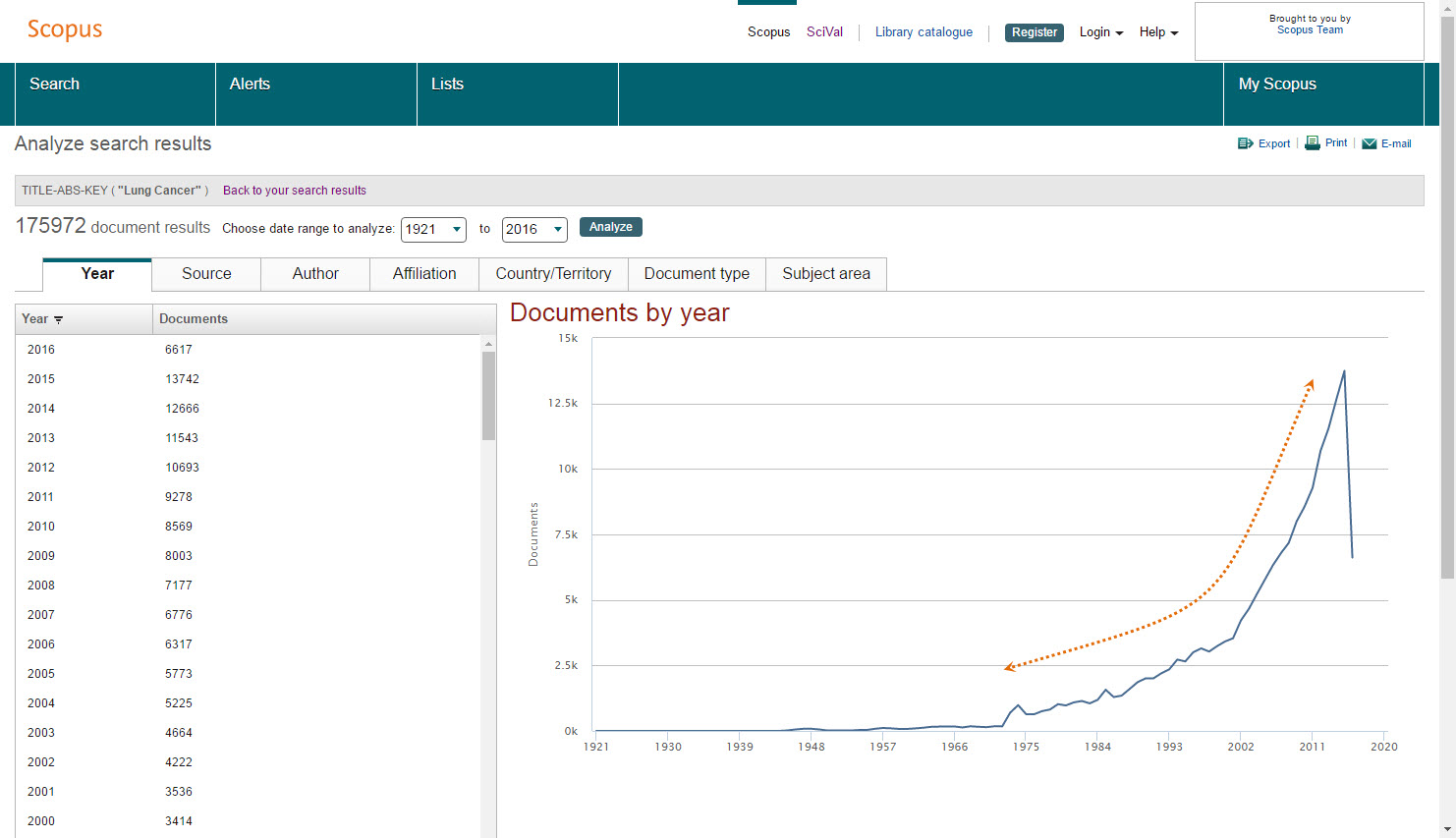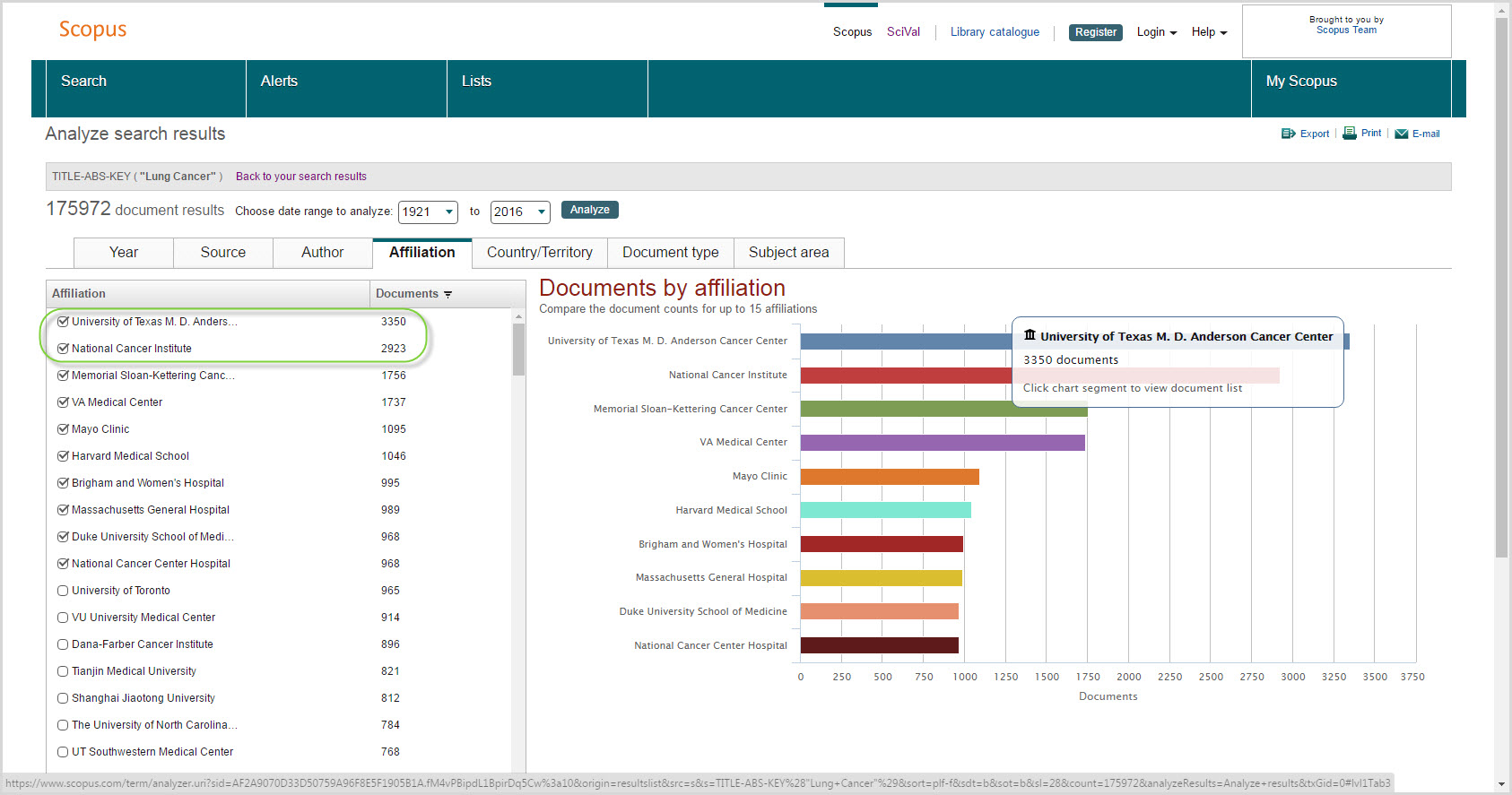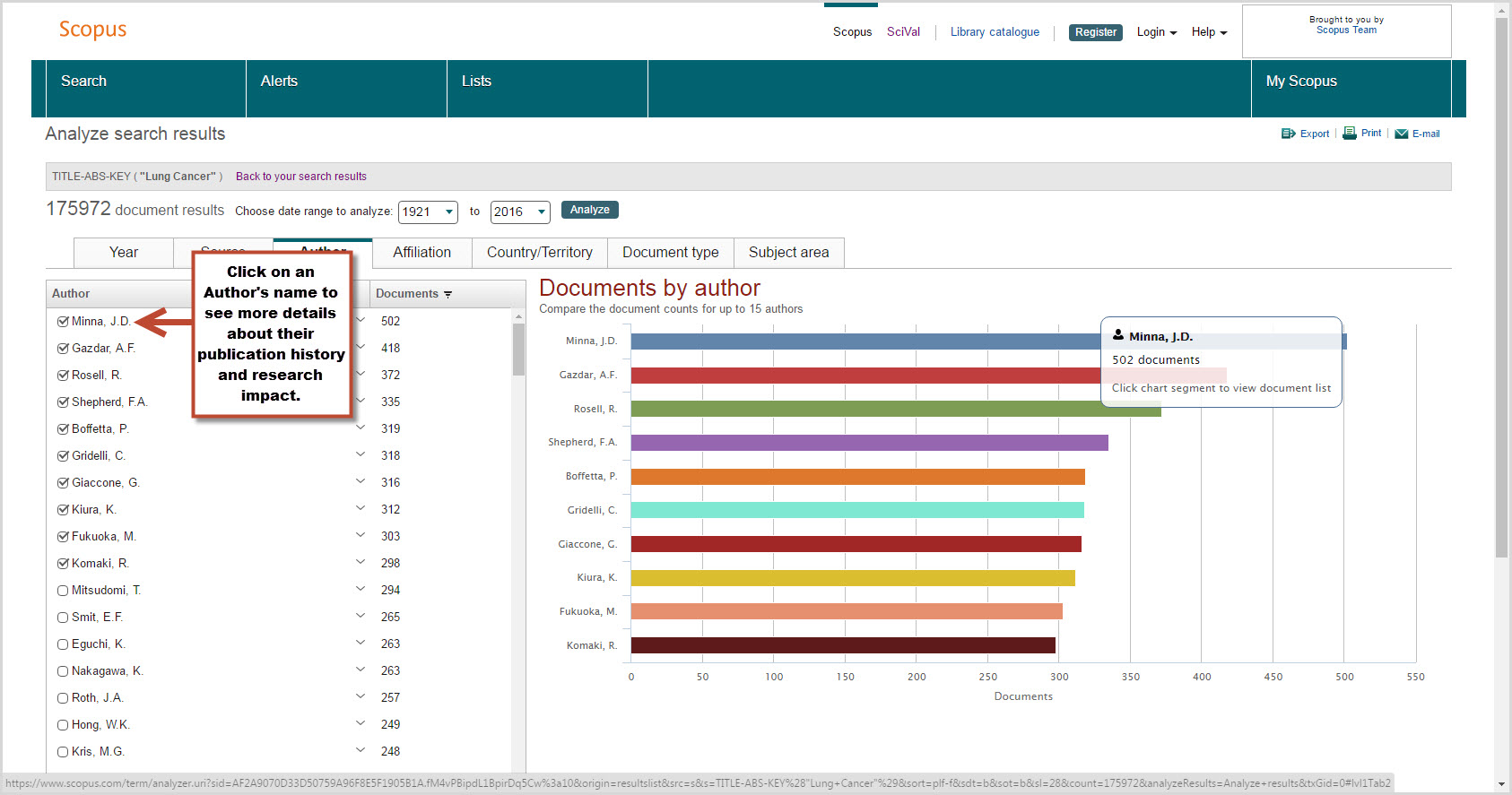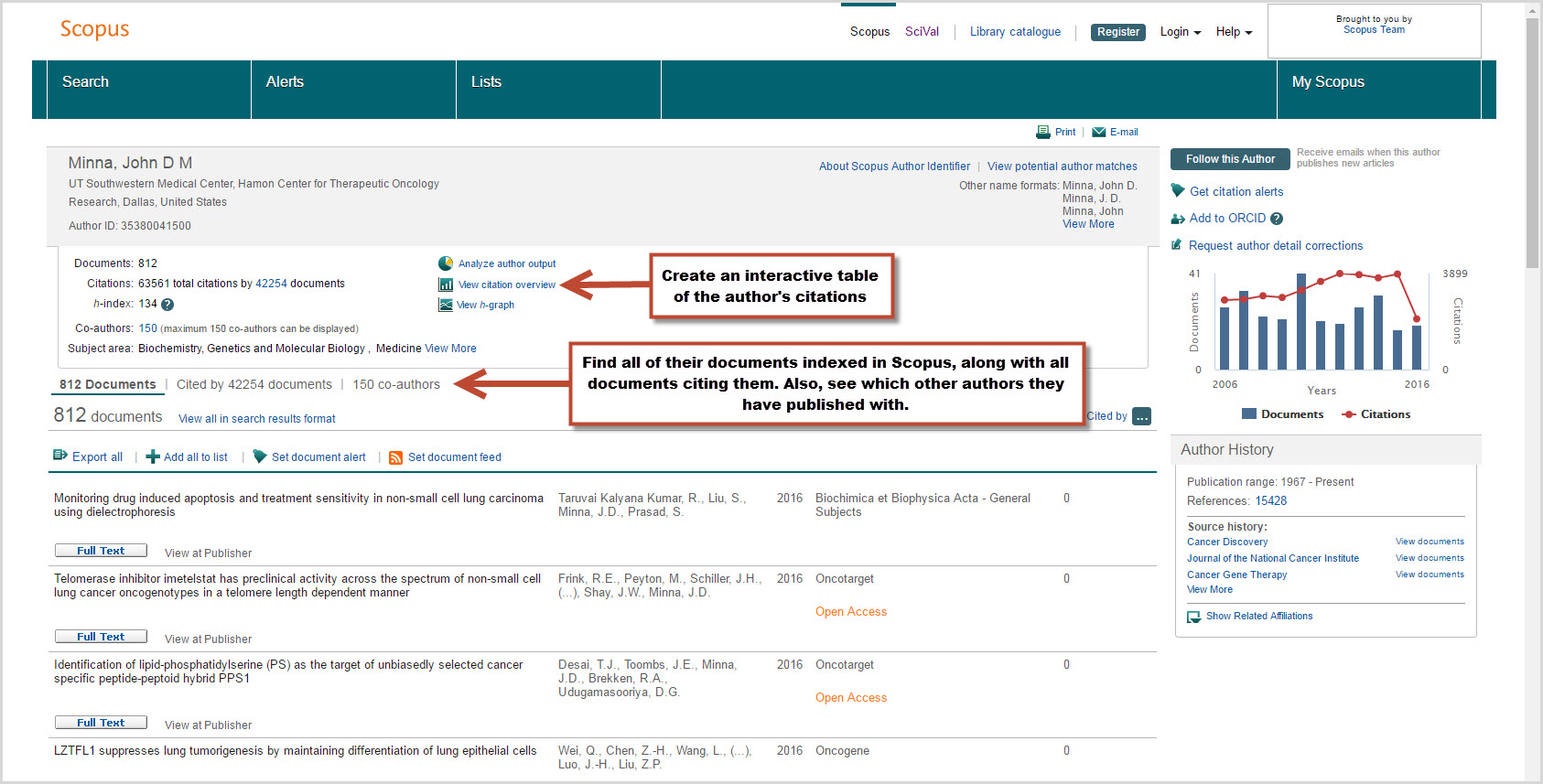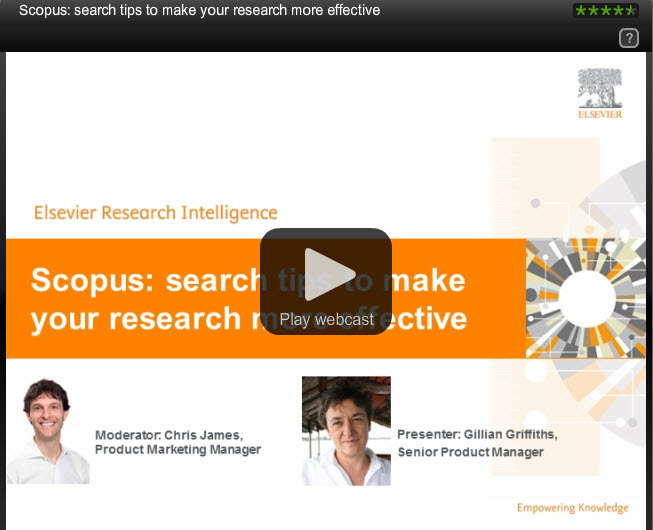World Lung Cancer Day: Finding relevant content in Scopus
August 1st is World Lung Cancer Day and in recognition of the research leading the way to understanding, educating, treating and eventually curing one of the most common types of cancer, we take a look at Scopus to see what content we can find (click on the images to expand).
A basic search in Scopus for “Lung Cancer” returns close to 176,000 results dating from 1921 to 2016.
To better understand our results, we clicked on <Analyze search results>. This opens an interactive way of delving further into our results, for example, looking at the <Documents by year> tab shows a steady growth in publications over the past 50 years, and a greater spike in the last 15 years.
Switching over to the <Affiliation> tab, we can also see that the University of Texas M. D. Anderson Cancer Center and the National Cancer Institute, have the most output relating to our search.
We can also look at the <Author> tab to find that the researcher with the most output relating to our “Lung Cancer” search is Minna, J.D. (502 related documents).
We can also learn more about the author's research by clicking on his name and looking at his author details page, such as his:
- Publication history
- Affiliation history
- Co-authors
- h-index
We can also:
- Look at his publication list (and find Gold Open Access publications)
- See who is citing his work (both from the list, or by clicking on <view citation overview> for a more interactive look)
- Find out which work he has cited
This is just one example of the type of insights Scopus can help you find from a search on Lung Cancer. You can also choose to begin with a more specific search or refine your search to yield a more targeted results set relating to cancer research.
To learn more about searching in Scopus and how to improve your search strategies, watch this webinar hosted by Senior Scopus Product Manager, Gillian Griffiths.


